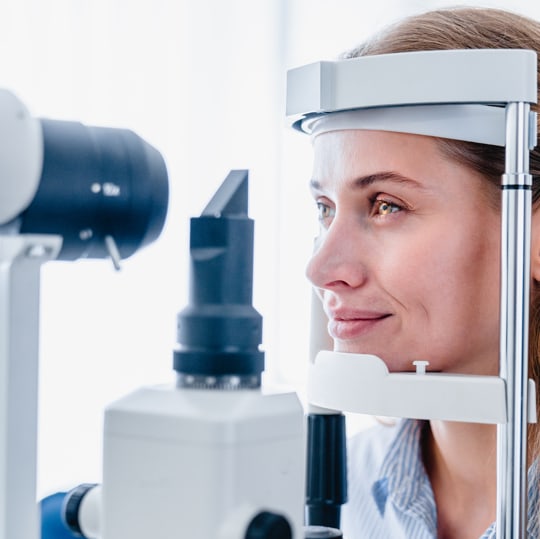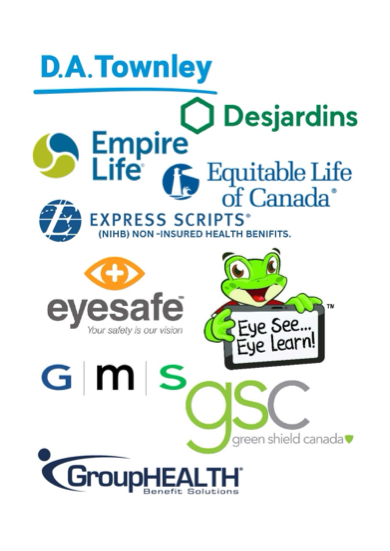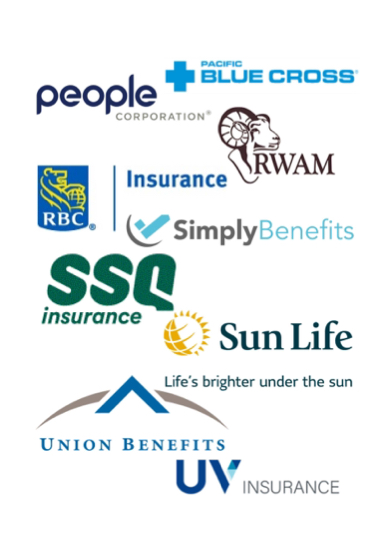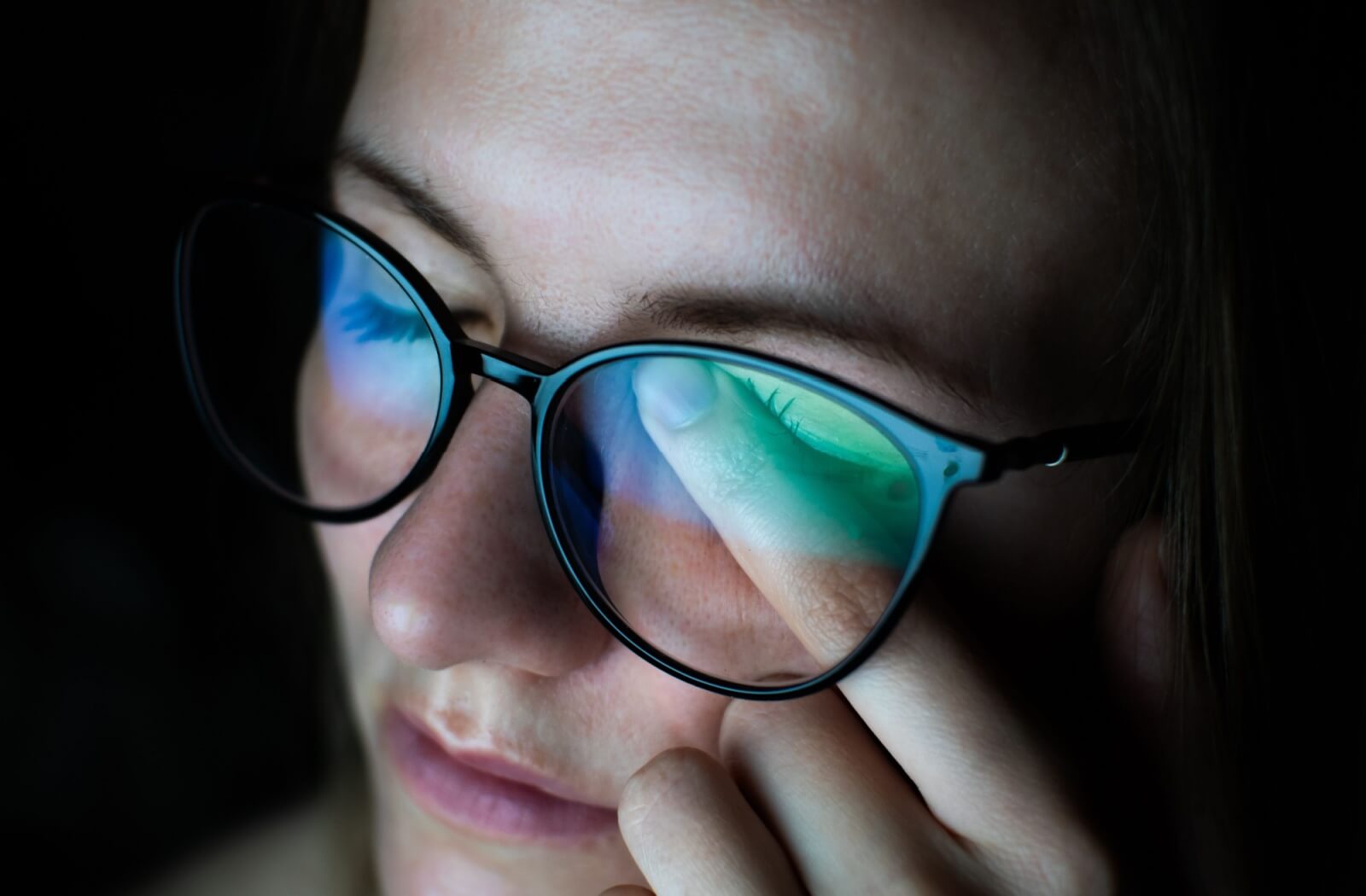Do you see small spots, squiggly lines, or strands that drift through your field of vision? If so, you may have eye floaters.
But what causes eye floaters? And what can you do if you have them? While eye floaters may be annoying, they’re not always a cause for concern. Eye floaters don’t typically mean something is wrong, but in some cases eye floaters can be a sign of an eye-health related issue, so it’s always best to see your optometrist if you’re experiencing any changes in your vision.
At Eyesis Eyecare Center, our optometrists are trained to improve your vision and detect issues before they become a more serious problem. Book an appointment today to ensure your vision and eye health are on track. Until then, keep reading to learn more about eye floaters, what causes them, and how they’re treated.
What Are Eye Floaters?
Eye floaters appear as small dark shapes that float across your vision. Most floaters are small flecks of a protein, called collagen, that build up in the gel-like substance in the back of your eye called the vitreous.
Everyone can experience eye floaters differently. If you have eye floaters you may notice any of the following shapes in your field of vision:
- Black or gray dots
- Squiggly lines
- Threadlike strands
- Cobwebs
- Rings
What Causes Eye Floaters?
Eye floaters are often a natural part of the aging process. As you age, the protein fibers that make up the vitreous in the back of your eye can clump together, which can appear as shapes floating across your visual field. While eye floaters can happen at any age, they usually start to occur between the ages of 50 and 75.
In addition to aging, floaters can also result from:
- Eye disease
- Eye injury, tumours, or infection
- Diabetic retinopathy
- Eye inflammation
- Bleeding in the eye
- Vitreous detachment
- Retinal tear or detachment
Do Allergies Cause Eye Floaters?
Typically floaters are not associated with allergies, but sometimes patients do report changes in their vision when their allergies are active. In some cases, allergic conjunctivitis can cause eye inflammation resulting in eye floaters.
Am I at Risk?
Almost everyone develops floaters as they get older, but some people are at higher risk. You may be at a higher risk of developing eye floaters if:
- You are very nearsighted
- You have diabetes
- You have had surgery to treat cataracts
I Have Eye Floaters. When Should I See My Optometrist?
If you only have a few eye floaters that don’t change over time, and don’t come with other symptoms, you don’t need to seek medical attention immediately. Of course, if there’s any change in your vision, it’s always best to book an appointment with your optometrist.
If your eye floaters are accompanied by any of the following symptoms, you should see your optometrist immediately:
- Flashes of light
- Loss of vision
- Sudden vision changes
- Vision changes that get worse over time
- Floaters that appear after eye surgery or eye trauma
- Eye pain
- A sudden increase in the number of eye floaters you see
When you visit your optometrist for an eye exam, they’ll perform a series of tests to check your vision and assess your overall eye health. These tests help to determine the cause of your eye floaters so you can get the treatment you need.
At Eyesis Eyecare Center, all of our eye exams include eye disease testing, so we’re able to detect issues early and get you prompt treatment.
How Are Eye Floaters Treated?
Many people that have eye floaters will notice that they come and go, and often don’t need treatment.
If you visit your optometrist for an eye exam, and they recommend treatment, it will depend on what’s causing your eye floaters. If your eye floaters are caused by an eye condition or disease, your optometrist will recommend treatment related to that eye condition. If your eye floaters affect your quality of life, they may recommend an eye surgery called vitrectomy surgery as a treatment option.
We’re Here to Help You
At Eyesis Eyecare Center, our team is always here to help your vision be the best it can be. Book an appointment to experience the difference better vision can make in your life. Of course, if you have any questions or concerns, our team is only ever a call away. Get in touch with us today!






































